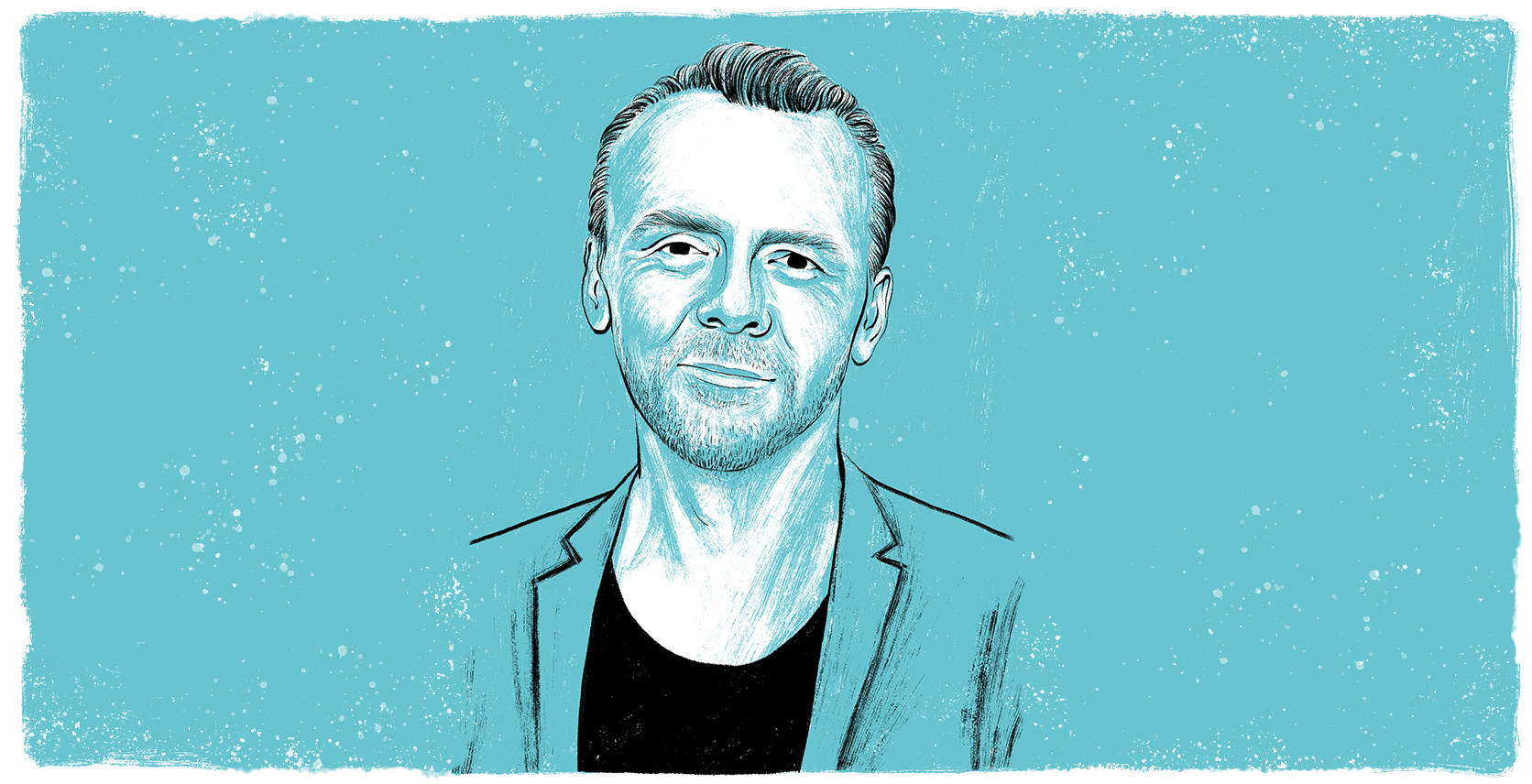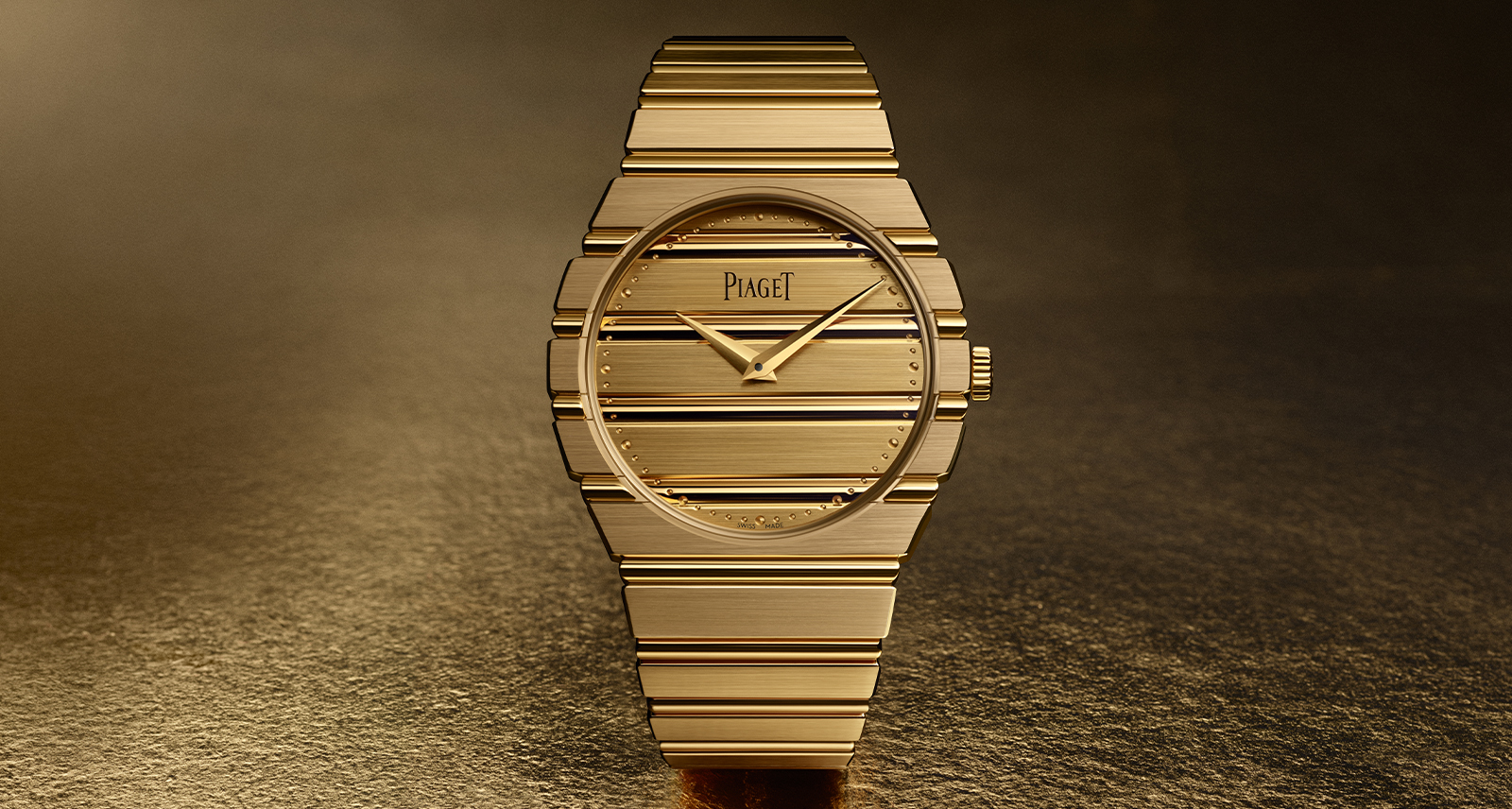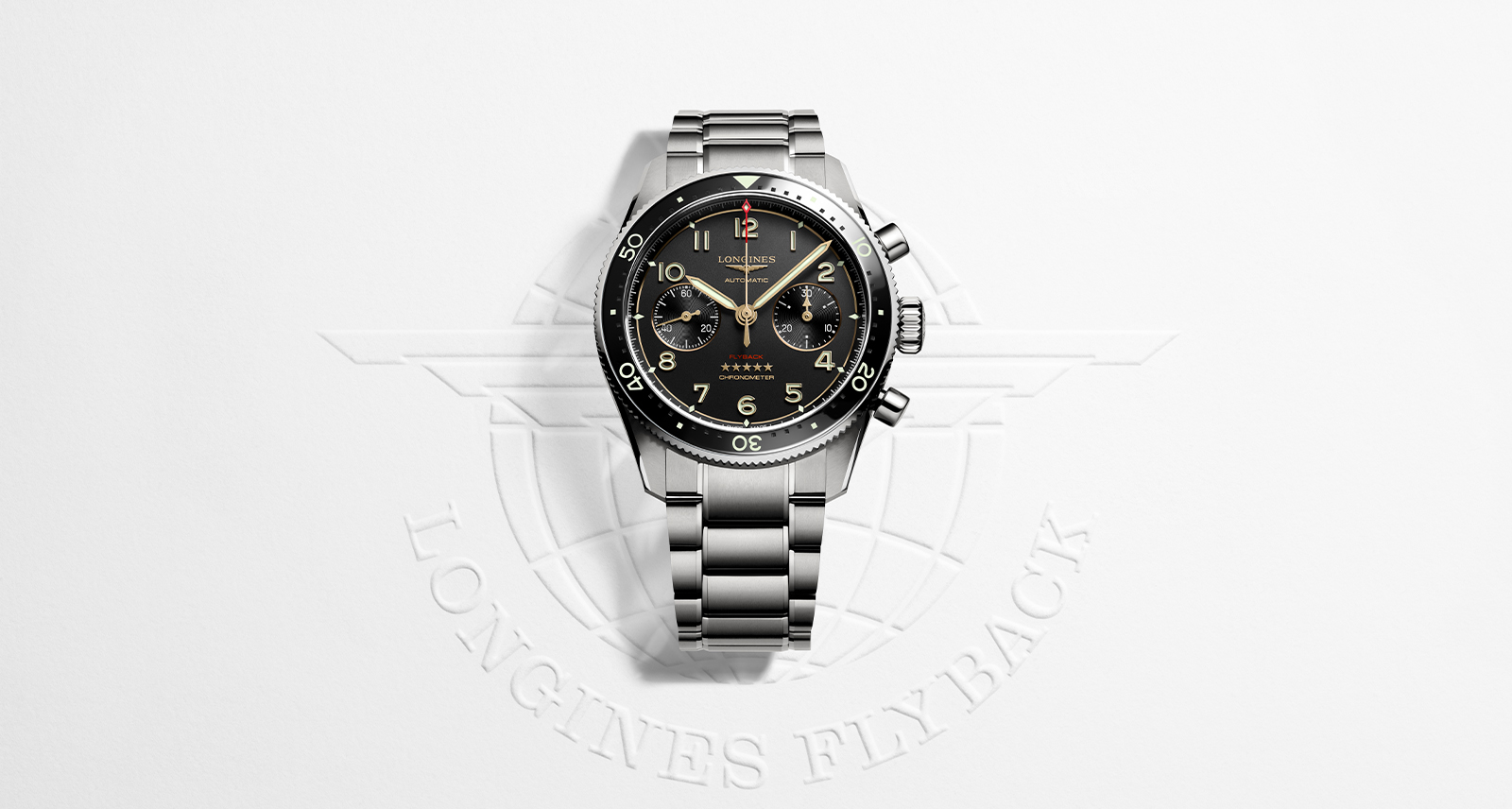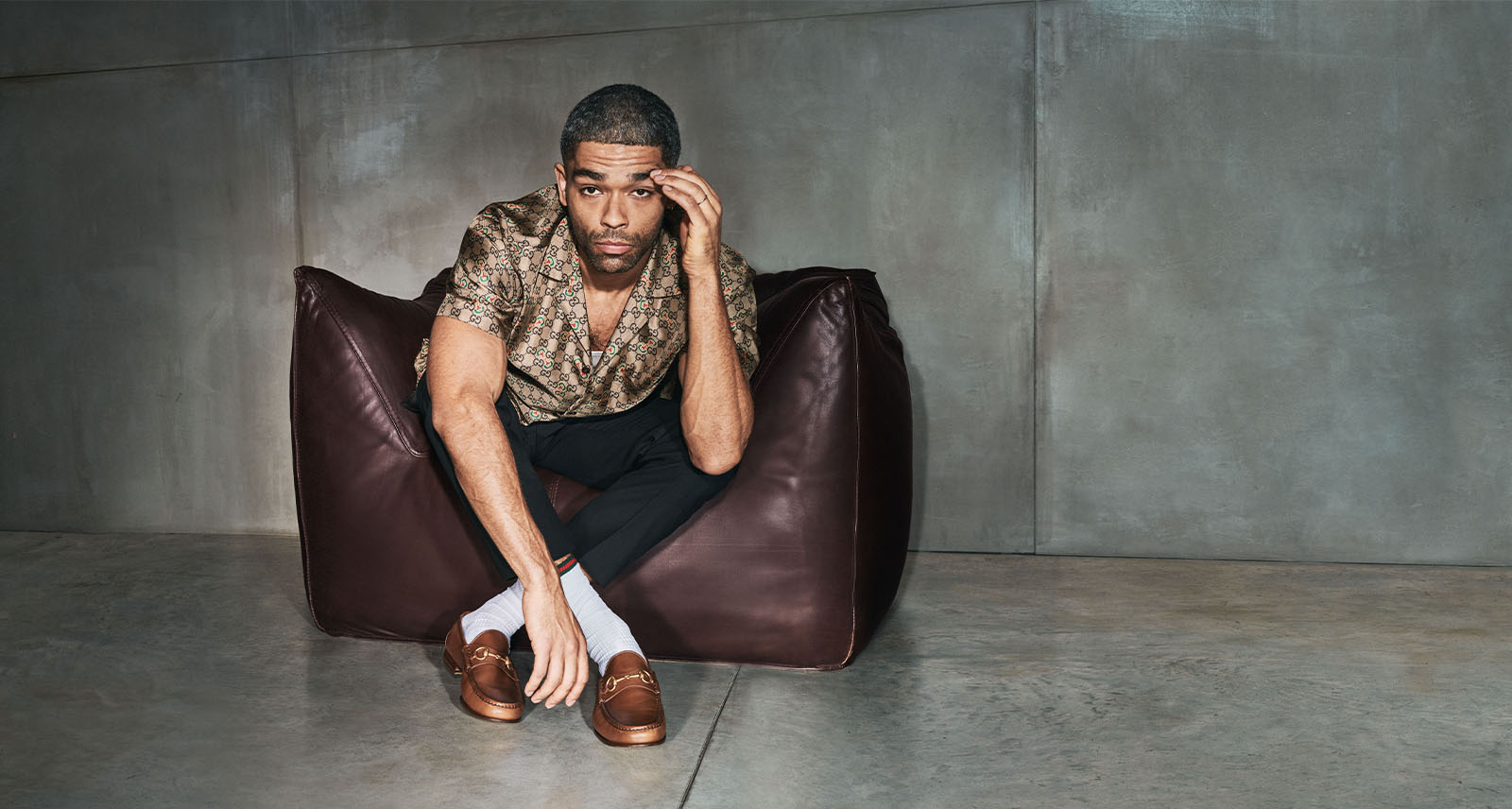Simon Pegg on ‘The Dark Crystal,’ the Far Right, and the Problem with Nerd Culture
You won’t find an actor more indebted to the geek-industrial complex than Simon Pegg. His trajectory reads like fan fiction: young sci-fi and horror nerd turns his obsession into a career, writing a homage-filled sitcom (Spaced) and cult rom-zom-com (Shaun of the Dead) before somehow winding up starring in the same intergalactic universes (Star Trek, Star Wars) he grew up with. His latest role, in Netflix’s The Dark Crystal: Age of Resistance — a prequel to Jim Henson’s 1982 puppet epic — is one more item off the fanboy bucket list.
But just as nerd culture has gone mainstream, Pegg is hanging up the suspenders. At 49, he’s outgrown his status as a dork figurehead, and will debate you about your childish fixation with superheroes. Nowadays, he’s more inclined to take on darker roles (as in the upcoming thriller Inheritance) and discuss real, non-Jedi-related issues, from Brexit to depression. It’s not that he’s against the Comic-Con-ification of pop culture; it’s just that he wants us to examine the capitalist forces behind it all. Which is to say, Pegg has finally reached adulthood — and he’s never been happier.
You’re playing the Chamberlain in The Dark Crystal: Age of Resistance. Why did you want to portray an evil, whimpering puppet monster?
I can clearly remember going to see The Dark Crystal when I was 12 and making that whimpering noise after I came out of the theatre. So the opportunity to actually play the Chamberlain has been just another one of those crazy moments where something I enjoyed as a child comes around to be part of my adult life. Star Trek, Star Wars, now this.
A big theme in the film is “the Darkening,” an ominous force that corrupts everything it touches. What’s the equivalent of that in today’s world?
I mean, just look around you. I’m sitting here in a country that has effectively just been the victim of a coup de grâce by Boris Johnson and his cronies. I don’t even have to mention you-know-who over in the States. This ratification of hatred, this normalization of negativity — it’s incredibly prevalent. So “the Darkening” is relevant for what’s happening now in terms of social attitudes and people being given free rein to just…be assholes. [Laughs.] It’s very on the nose.
You’re revered as sort of an über-nerd. Do you regard yourself as one?
Yes and no. There’s a part of me that loves nerd culture, but it doesn’t define me quite as much as people think. I just happen to channel some of that pop-cultural fascination into my work; as fans of film, mine and Edgar Wright’s movies have been very much about our love for cinema as much as they’ve been about the subject matter of the movies. But I think now, at nearly 50, I don’t really consider myself a nerd. There are plenty of other things that occupy my time, like snowboarding! My house is not full of toys.
Nerd culture is now very mainstream, with superhero movies and Star Wars ruling the box office. Is this a good thing?
Well, the only thing that made comic books nerdy was that, back then, the people who invested themselves in that medium existed on the fringes of society. But it’s not nerdy anymore to like the Avengers or science fiction; they’ve been embraced by the mainstream. Market forces tend to dictate these things. I think these properties appeal to us now because we’re growing up a lot later than we used to. The war generation, their adulthood began when they were 18. Nowadays, in this extended period of affluence and relative peace, we don’t really have to grow up until we want to. We’re still consuming what would have been regarded as childish stuff. There’s an argument that it’s frivolous and escapist and a distraction from reality, but that’s a whole other essay.
It is weird that I’ve been emotionally invested in Wolverine since I was six.
Yeah, and there’s nothing wrong with that as such, as long as you don’t maintain the same perspective on life as you did when you were a child. That kind of immaturity leads to selfishness. We need to be forward-thinking and realistic in terms of the planet and our future as a species. Of course you can care about the X-Men, as long as you also care about the fact that the ocean’s full of plastic.
But you’re still in the Star Trek movies and now The Dark Crystal: Age of Resistance. Are you contributing to this prolonged infantilization?
Well maybe, but it’s not my responsibility to make other people grow up. [Laughs.] It’s wrong to decry pure entertainment and it’s amazing these stories exist. It’s just that we have to make personal choices about how much it controls our lives. I look back at how upset I was about The Phantom Menace and I just think, “You dick!” I regret putting that much energy into worrying about something I didn’t like, when it’s far more positive to concentrate on something you love.
“You can be a billionaire and want to kill yourself, but you can be picking up dog shit and loving life completely. As long as you’re happy, you’re a success.”
I saw a quote of yours that, as a thirtysomething, really intrigued me: “I hated my thirties; I’m loving being in my forties.”
Oh, I was just in a bad place emotionally during my thirties. I didn’t get my act together until I hit 40, and then I started to enjoy myself more. Life is what you make it, as Talk Talk said, and I think whatever decade you’re in, you have to just make that the best one each time. I mean, again, I’m staring down 50 next year! It’s really strange because I don’t feel like a 50-year-old man. When I look at my dad, he at 30 seemed older than I am now, in a way. I’m sure your thirties are wonderful.
That’s debatable.
[Laughs.] It gets better. And that’s the thing now: you don’t have to just fit into some template of what a 40-year-old person should be doing. That’s entirely up to you. You write your own story.
Earlier this year, you broke the Internet when your trainer posted a photo of your chiselled six-pack. How did it feel to become a fitness influencer?
It was strange! Mainly because it wasn’t really an aspirational look. I was really bony, so I wasn’t really showing off my muscles; I just had no fat. I was preparing for the movie Inheritance, where I played someone who’d been held hostage for a long time, but who’d been keeping himself fit. So, it was a very specific look. When I was finally ready to shoot, I’d been basically running a marathon, in seven-mile increments, every day for three months, and eating a calorie-restricted diet. So, when the picture went out, there were lots of people going, “Wow, you look great!” and then lots of people going, “Wow, you look sick!” [Laughs.] That whole thing is bizarre these days.
Social media, you mean? I heard you quit Twitter a while ago.
I felt like it made me too available. On one hand, I was a private person, and on the other, it was like I’d given the world my phone number. It’s hypnotic to look through replies to your tweets and see this bizarre spectrum of love and disdain. I also didn’t like the fact that every time somebody died, you’d feel like you had to write something, and then that comment would get picked up by news services as if you’d offered it up. I didn’t like who I was on Twitter either. It’s become this staging point for adversarial nonsense.
It’s become a breeding ground for the Darkening!
But it’s also been co-opted by people who know how to manipulate that. It’s this kaleidoscope of different truths. The left and right are guilty of going in there and just stirring shit up to further the divide between them, and the potential for any kind of conversation and compromise is eradicated. Everyone has their own little echo chamber. People who have loathsome ideas find other people with similarly loathsome ideas, and then they suddenly think, “It’s okay to think this! I shouldn’t be ashamed of my racism because other people think the same as me. Now I can say it!” No, you shouldn’t fucking say it! Grow a brain and realize that what you’re saying is bullshit.
Well, you don’t share much online anymore, but you recently decided to start speaking publicly about your past struggles with alcoholism and depression. Why?
I’ve always been very private, but as I’ve gotten older, I’ve realized you don’t have to be so fiercely protective. Sometimes it helps to share stories like that. Mental health is something that’s still incredibly misunderstood and stigmatized. And it helps if people who are assumed to be living a great life — because everyone thinks people who act in films have great lives — show that it can affect anybody. It’s indiscriminate. Happiness is something that exists on a different level than money. You can be a billionaire and want to kill yourself, but you can be picking up dog shit and loving life completely. As long as you’re happy, you’re a success.










